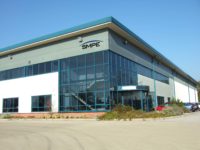Hydrogen vehicles to celebrate expanding refuelling station network
Hydrogen-powered fuel cell electric vehicles will travel nearly 6,000km across Europe to converge in Hamburg to celebrate the expanding network of refuelling stations. Thirteen vehicles starting in five countries (Belgium, the Netherlands, Germany, Denmark and Norway) will travel a combined 5,836km to reach the German city ahead of the Hydrogen for Clean Transport – H2ME Mid-Term Conference on 25th October. The journey will demonstrate the advantages of hydrogen mobility and motorway driving.
The road trip to Hamburg is only possible following the expanding network of refuelling stations, in part due to funded installations from the pan-European Hydrogen Mobility Europe (H2ME) project that assesses the technical and commercial readiness of vehicles, fuelling stations and hydrogen production techniques. H2ME has funded the installation of 32 hydrogen refuelling stations (HRSs) across Europe to date, with a target of up to 49 by 2022.
The recently launched European HRS Availability System h2-map.eu shows the location and live status of 137 HRSs, with more than half of these available in Germany. The pan-European road trip to Hamburg comprises 15 HRSs; international standards ensure compatibility between refuelling stations and vehicles, and the refuelling process takes around three to five minutes, offering times comparable to conventional petrol or diesel cars, and reduces overall journey times.
As part of the H2ME project, hydrogen-powered fuel cell electric vehicles have travelled a combined distance of over 11.6 million kilometres. The milestone comes following the deployment of more than 550 hydrogen vehicles for private and business use across the United Kingdom, Germany, France, Scandinavia, and other European countries. This is becoming possible as an increasing number of car manufacturers are making available new-generation hydrogen vehicles today, or planning to make hydrogen vehicles available in the near future. The H2ME project has deployed partner FCEVs, including: the Toyota Mirai; Symbio’s new generation of the Renault KANGOO Z.E; Honda’s second-generation FCEV; and Daimler’s new-generation Mercedes-Benz GLC F-CELL. H2ME project partners AUDI and BMW have also announced plans for releasing small series hydrogen vehicles in the coming years. In total, more than 1,400 FCEVs will be deployed by 2022.
Findings from the H2ME project will be announced at the Hydrogen for Clean Transport: H2ME Mid-Term Conference in Hamburg. Taking a strategic approach in combination with renewable energies, Hamburg is seen as an early adopter for hydrogen fuel to reduce transport emissions. The event will showcase the advances made by hydrogen technology in the transport sector and discuss the remaining challenges of widespread commercialisation.



Comments